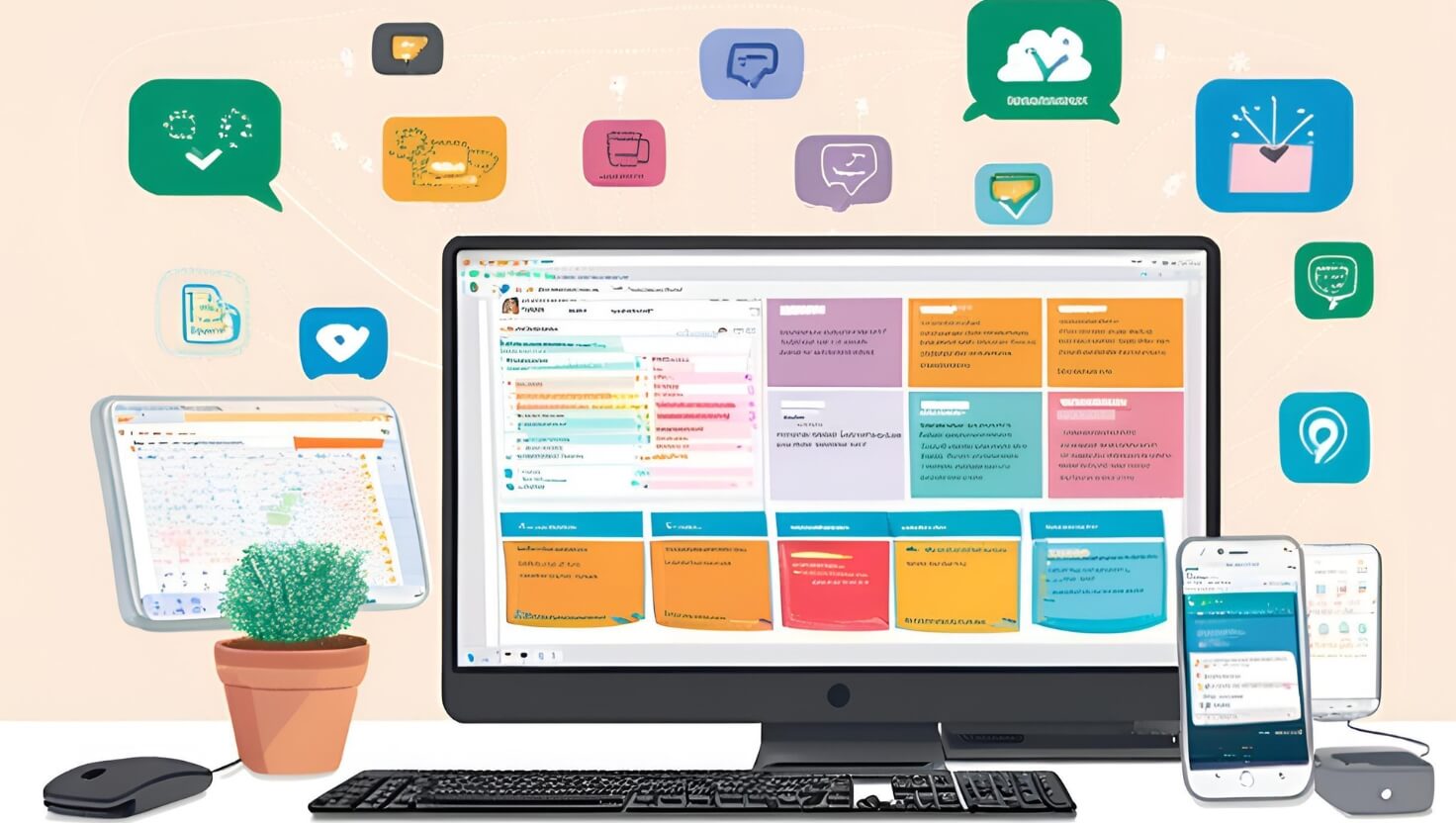The Future of Customer Engagement Solutions
The landscape of customer engagement is evolving rapidly. Emerging technologies and changing consumer expectations are reshaping how businesses interact with their customers.
In this digital age, personalization is becoming the cornerstone of customer engagement. Businesses are leveraging AI and machine learning to predict customer behavior and deliver personalized experiences.
Omnichannel strategies are being adopted to provide seamless customer experiences across various touchpoints. Data analytics are being used to gain deeper insights into customer preferences and behaviors.
Chatbots and virtual assistants are becoming commonplace, providing real-time customer service. Mobile-first strategies are being implemented to engage the on-the-go consumer.
This article explores these trends and more, providing insights into the future of customer engagement solutions. It aims to help businesses understand and adapt to these changes, ensuring they stay ahead in the evolving landscape of customer engagement.
The Evolution of Customer Engagement
Customer engagement has come a long way from simple transactions to intricate interactions. In the past, businesses focused on a one-size-fits-all approach to customer service.
Today, the focus has shifted towards building meaningful relationships with clients. Businesses are now prioritizing tailored experiences and employing sophisticated engagement software and customer engagement tools. This evolution is driven by the need to meet ever-changing consumer expectations and preferences. As technology continues to advance, companies are also adapting their client engagement strategies to ensure they provide an exceptional customer experience across various platforms. The future promises even more significant changes to how businesses engage with their clients.
Personalization: The Heart of Future Engagement
In future customer engagement solutions, personalization will be pivotal. Consumers now expect tailored interactions that resonate with their unique needs and preferences. By customizing experiences, businesses can foster stronger connections with their customers.
Leveraging technologies like data analytics and AI, companies can gain deeper insights into customer behavior. This allows them to offer more personalized, relevant interactions. As personalization becomes more refined, customers feel valued and understood, increasing loyalty and satisfaction. Businesses that excel in personalizing their engagements are likely to see enhanced customer retention and brand advocacy. In the digital age, such customized interactions are crucial to maintaining a competitive edge.
AI and Machine Learning: Predicting Customer Needs
AI and machine learning are revolutionizing customer engagement solutions. These technologies analyze vast amounts of data to forecast customer behavior accurately. By understanding patterns, businesses can anticipate needs before they arise.
Predictive analytics enables proactive strategies, enhancing engagement by offering relevant solutions at the right time. This shift from reactive to proactive engagement increases customer satisfaction. AI-driven insights also allow for more efficient resource allocation, optimizing operations. As machine learning continues to evolve, its ability to predict and meet customer expectations becomes indispensable. Businesses that harness these technologies will likely enjoy increased loyalty and growth.
Omnichannel Strategies: Creating Seamless Experiences
In today’s digital age, customers engage through various channels. They switch between online and offline touchpoints effortlessly. Omnichannel strategies ensure a consistent and unified experience across these platforms. This approach enhances brand loyalty by providing a seamless journey.
To achieve this, businesses must integrate systems and data across all channels. Cohesive messaging and branding help maintain consistency. With an omnichannel approach, customers can start an interaction on one platform and continue seamlessly on another. This fluidity not only enhances customer satisfaction but also boosts engagement. Companies that invest in robust omnichannel strategies are better positioned to meet modern consumer expectations.
Leveraging Data Analytics for Deeper Insights
Data analytics has become a cornerstone of modern customer engagement. By analyzing customer behavior, businesses can gain valuable insights into preferences and trends. This helps tailor experiences and anticipate needs, enhancing overall satisfaction.
Harnessing data effectively requires sophisticated tools and strategies. Companies must invest in advanced analytics platforms to process large volumes of information. The insights derived allow for more personalized marketing strategies and product offerings. Ultimately, leveraging data analytics leads to more informed decision-making, helping businesses stay competitive in a fast-evolving market. As analytics technology advances, opportunities for creating impactful engagements will only grow.
The Rise of Chatbots and Virtual Assistants
Chatbots and virtual assistants are revolutionizing customer engagement. They provide immediate responses, enhancing customer satisfaction and reducing wait times. These tools are increasingly becoming a standard feature in customer engagement solutions.
Businesses are leveraging AI-driven chatbots to handle a variety of tasks. From answering frequently asked questions to guiding users through complex processes, they serve as an efficient frontline. As technology progresses, chatbots and virtual assistants will evolve. They will offer even more sophisticated interactions, ultimately shaping the future of customer service. Enhanced natural language processing capabilities will lead to more human-like conversations and better user experiences.
Mobile-First Strategies: Engaging the On-the-Go Consumer
The rise of smartphones has transformed how consumers interact with businesses. Mobile-first strategies prioritize these interactions, ensuring a seamless experience across various devices. Businesses that embrace this shift stand a better chance of engaging modern consumers.
Mobile-optimized customer engagement tools are no longer optional. They enable businesses to connect with their audience wherever they are. From mobile-friendly websites to apps and notifications, these tools enhance accessibility and engagement. This approach is essential for capturing attention and driving engagement in an increasingly mobile-centric world.
The Importance of Customer Feedback Loops
Customer feedback is a goldmine for businesses seeking to improve engagement. By actively listening, companies can refine their offerings based on real consumer needs. Feedback loops create a cycle of continuous improvement and adaptation.
Integrating feedback into engagement strategies increases relevance and customer satisfaction. Listening to customers fosters trust and loyalty, essential components for lasting relationships. Effective feedback loops ensure businesses are responsive, proactive, and aligned with customer expectations.
Cloud-Based Platforms: Flexibility and Scalability
Cloud-based customer engagement solutions offer unmatched flexibility. Businesses can easily scale their operations to meet changing customer demands. This adaptability is crucial in a fast-paced digital environment.
Moreover, cloud platforms allow seamless integration with other tools. This connectivity enhances data sharing and collaboration across departments. With cloud solutions, businesses can innovate rapidly and efficiently, staying ahead of competitors.
Security and Privacy in the Age of Data
In today’s data-driven world, security and privacy are paramount. Customers demand transparency about how their data is used. Businesses that prioritize data protection will earn customer trust and loyalty.
Implementing robust security measures is essential. Companies must ensure data encryption and regular audits. By protecting customer information, businesses can prevent breaches and maintain a positive reputation.
Conclusion: Adapting to the Future of Customer Engagement
The future of customer engagement is dynamic and technology-driven. Embracing new tools and strategies will keep businesses competitive. Adaptability and a customer-first mindset are essential for thriving in this ever-evolving landscape.

